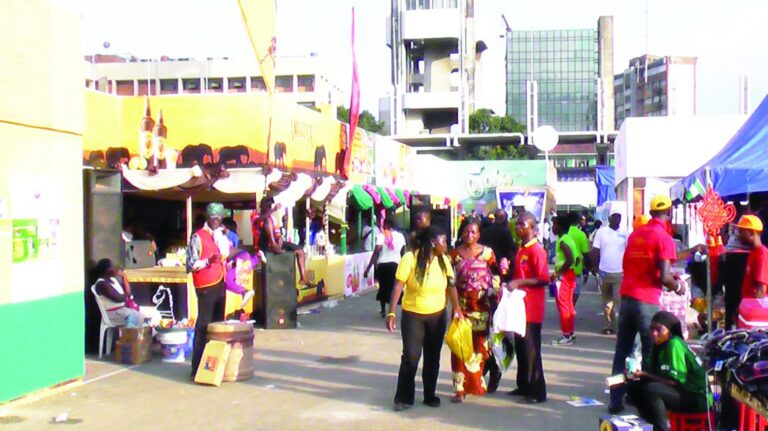After a 14-year pause, the Nigeria International Trade Fair (NITF) is making a historic comeback — reemerging as the nation’s signature marketplace for commerce, innovation, and regional cooperation. Scheduled for November 21–30, 2025, at the Lagos International Trade Fair Complex along the Badagry Expressway, the event is being hailed as the rebirth of Nigeria’s global trade identity.
At the forefront of this revival is Barr. Vera Ndanusa, Executive Director of the Fair Complex Management Board, who describes the return not merely as an event but as “a restoration of Nigeria’s place as West Africa’s trade heartbeat.”
Reviving a Legacy, Reclaiming a Mandate
For decades, the Lagos Trade Fair served as a continental hub where global investors, manufacturers, and local businesses converged. Now, the 2025 edition seeks to restore that legacy under its original name and purpose — a national marketplace built for Africa’s expanding commercial ecosystem.
“This revival isn’t nostalgia,” Ndanusa explains. “It’s a deliberate return to Nigeria’s founding vision — to position the country as the economic gateway of West Africa and beyond.”
With its strategic location along the West African corridor, the fair is being designed as a launchpad for regional and continental trade, connecting Nigerian enterprises directly to the $700 billion ECOWAS market and the African Continental Free Trade Area (AfCFTA).
Empowering SMEs at the Center of Growth
Small and medium enterprises (SMEs) form the backbone of Nigeria’s economy — and they’ll take center stage at NITF 2025. The fair will feature export readiness workshops, access-to-finance sessions, digital transformation clinics, and matchmaking opportunities with investors and buyers from across Africa and beyond.
“Our SMEs are our power base,” Ndanusa says. “This year’s fair will spotlight their innovation and open global doors for women-led, youth-driven, and export-ready businesses.”
Beyond exhibitions, the fair will reintroduce the NITF Awards, rewarding outstanding entrepreneurs and fostering healthy competition in innovation and manufacturing.
Digital Trade and the Future Marketplace
Recognizing the rapid shift toward e-commerce and technology-driven business models, the fair will integrate a digital trade ecosystem into its core activities.
Participants will benefit from:
-
Virtual exhibitions and digital catalogues allowing global buyers to connect with exhibitors in real time.
-
Tech-themed pavilions highlighting e-commerce, fintech, and green innovation.
-
Policy forums focused on cross-border digital trade frameworks.
“Our goal is to ensure that Nigerian businesses not only trade physically but also thrive digitally,” Ndanusa adds. “We expect real partnerships with global tech firms and case studies of Nigerian SMEs expanding into new markets through digital tools.”
Beyond Networking: Turning Conversations into Contracts
Unlike traditional fairs that often end with handshakes and photo ops, NITF 2025 is being structured to ensure tangible business outcomes. Dedicated B2B and B2G meeting suites will facilitate confidential deal signings, Memoranda of Understanding (MoUs), and direct negotiations between businesses and government agencies.
Each engagement will be tracked to measure its contribution to national economic output, export expansion, and investment inflows.
“The difference this year is accountability,” Ndanusa asserts. “We’ll track every MoU, every partnership, and every export opportunity that emerges from this fair.”
A Sustainable Revival Backed by Policy and Partnership
The fair’s return follows years of policy missteps, funding challenges, and institutional disconnects. But under the renewed economic direction of President Bola Ahmed Tinubu’s eight-point agenda, the federal government has prioritized restoring Nigeria’s trade leadership in Africa.
Public-private partnerships, improved governance, and strong inter-agency collaboration are now the pillars ensuring that the fair becomes an annual fixture once again — one that outlives administrations and political cycles.
“This isn’t a one-off celebration,” Ndanusa emphasizes. “We’re rebuilding a legacy that must continue every year, long after today’s leaders have moved on.”
Global Participation and Economic Ripple Effects
International delegations are already signaling interest, with incentives such as tax exemptions on exhibited goods, localized support teams, streamlined logistics, interpreters, and curated investor introductions.
The fair is expected to generate a multi-sectoral economic impact across Nigeria — from tourism and hospitality to transportation, media, and retail. For foreign participants, it provides a direct, low-barrier entry into Africa’s largest consumer market.
“It’s a win-win situation,” Ndanusa explains. “Foreign investors gain access to over 200 million consumers, while Nigerian businesses enjoy technology transfer, funding opportunities, and export expansion.”
Addressing Challenges, Ensuring Stability
Recent controversies surrounding demolition activities at the Trade Fair Complex have raised concerns, but Ndanusa assures that security, infrastructure, and operations are fully intact.
“The fair will hold peacefully,” she confirms. “We’ve resolved intergovernmental issues and reinforced security measures. Nigeria’s image and investor confidence are priorities — and both will be protected.”
The Road Ahead: Nigeria’s Reawakening as Africa’s Trade Capital
As anticipation builds for the November 2025 launch, the Nigeria International Trade Fair stands as a symbol of national renewal — a blend of tradition and innovation that repositions Nigeria at the center of Africa’s economic map.
From SME empowerment to digital integration and international collaboration, the fair represents more than an event — it’s a declaration that Nigeria is ready to trade, lead, and thrive again.

